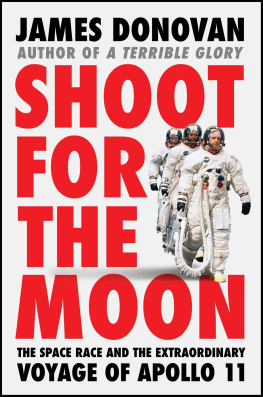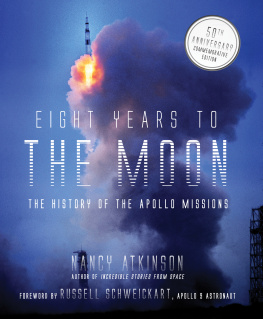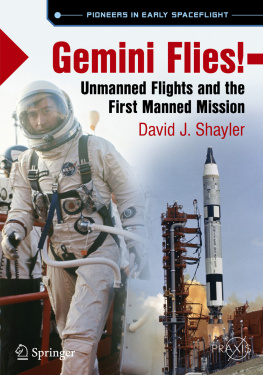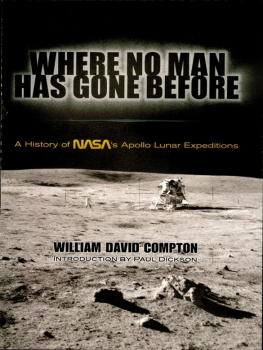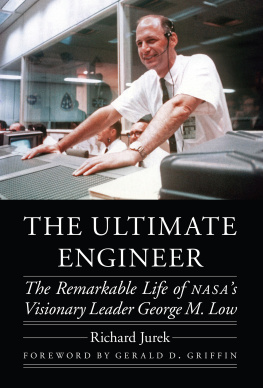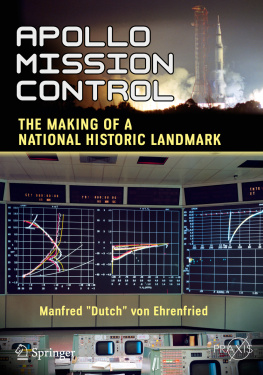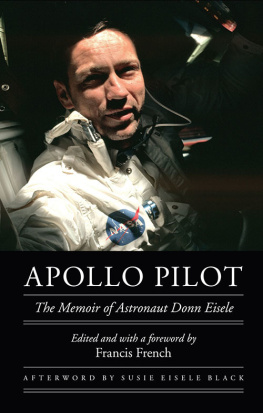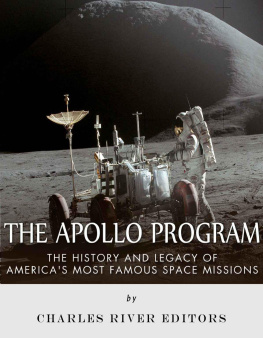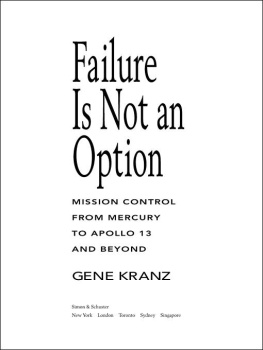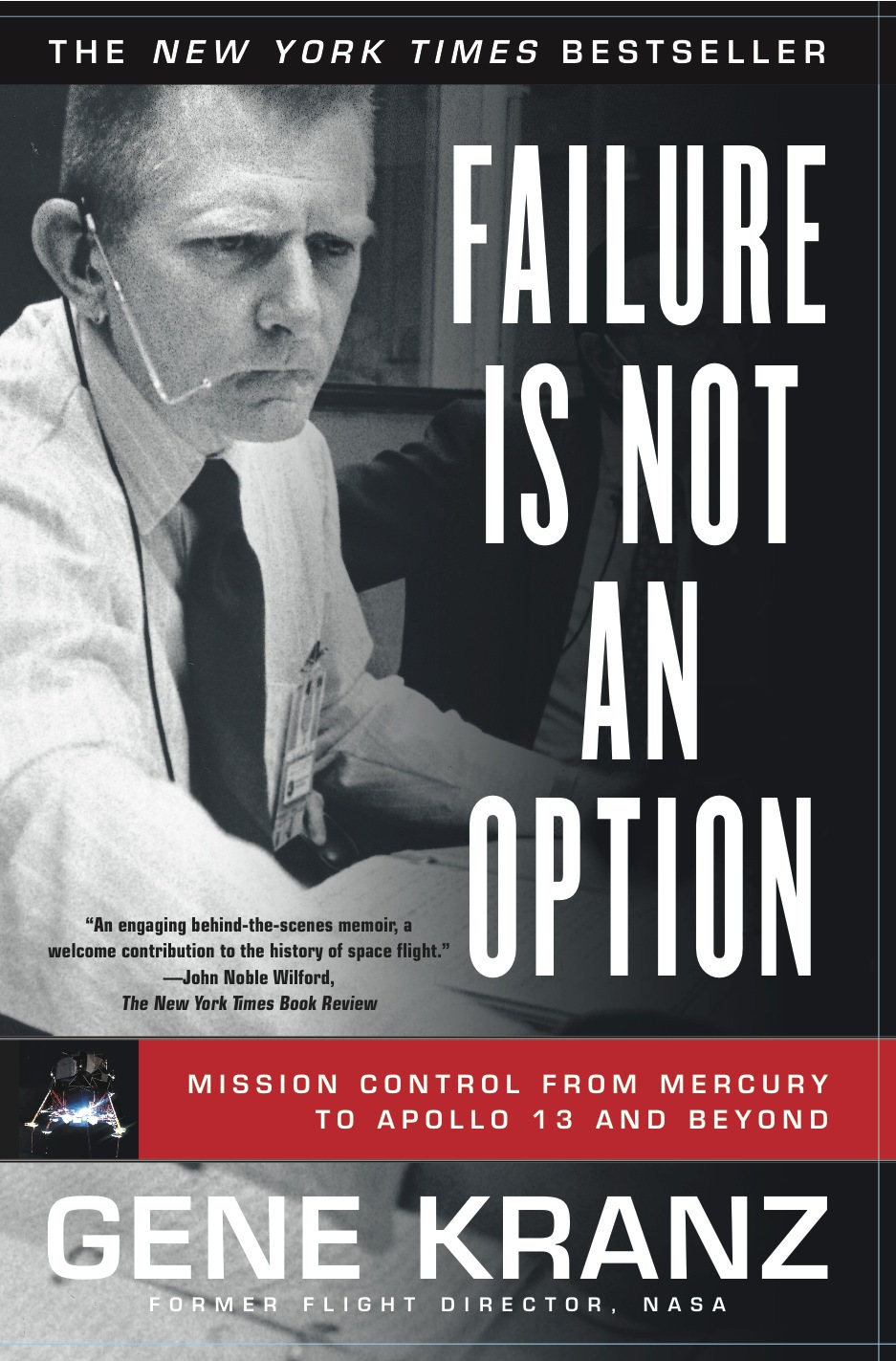1
THE FOUR-INCH FLIGHT
Houston, we have a problem.
At some time in the hours that followed that terse announcement from Apollo 13, many of us in NASAs Mission Control Center wondered if we were going to lose the crew. Each of us had indelible memories of that awful day three years before when three other astronauts sat in an Apollo spacecraft firmly anchored to the ground. Running a systems test. Routine. In terms of the distances involved in spaceflight, we could almost reach out and touch them.
Moments after the first intimation that something had gone terribly wrong, technicians were up in the gantry, desperately trying to open the hatch. It took only seconds for an electrical glitch to ignite the oxygen-rich atmosphere of the cabin, creating a fire that was virtually a contained explosion. In those few seconds, the men inside the capsule knew what was happeningand they must have realized, at the last moment, that there was no escape. We simply could not reach them in time.
Now, three equally brave men were far beyond us in distance, far out in the vast absolute zero world of space, the most deadly and unforgiving environment ever experienced by man. We could measure the distances in miles. But with so many miles, the number was an abstraction, albeit one we had become used to dealing with in matter-of-fact fashion.
We could reach them only with our voices, and they could speak to us only through the tenuous link of radio signals from precisely directional radio antennas. This time they were truly beyond our reach. Time and distance. So close were we in the Apollo fire that claimed the first three Americans to be killed in a spacecraft.
Now we were so far, so very far, away.
Once again, technology had failed us. We had not anticipated what happened back then, on Earth. We had not anticipated what had happened this time. In fact, it would be hours before we really understood what had happened. There was one big difference in this case. We could buy time. What we could not accomplish through technology, or procedures and operating manuals, we might be able to manage by drawing on a priceless fund of experience, accumulated over almost a decade of sending men into places far beyond the envelope of Earths protective, nurturing atmosphere. All we had to work with was time and experience. The term we used was workaroundoptions, other ways of doing things, solutions to problems that werent to be found in manuals and schematics. These three astronauts were beyond our physical reach. But not beyond the reach of human imagination, inventiveness, and a creed that we all lived by: Failure is not an option.
That was not true in the beginning of the space program. There had been many early failures back thenbecause we hadnt learned enough about the perilous business in which we were engaged.
Would it happen againthe loss of three men? We had failed our crew in Apollo 1. This time we had a few hours to do something. But did we have the wisdom? And could we somehow build not just on our own years of experience but the courage and resourcefulness of three astronauts far, far from home?
Sociologists and engineers call it the human factor. Its what we must depend on when all the glittering technology seems, suddenly, useless.
For me, and others sitting safely in Mission Control in Houston, we could depend only on a learning curve that started at a place that wasnt more than a complex of sand, marsh, and new, raw concrete and asphalt. It wasnt even Kennedy Space Center then. But it was our first classroom and laboratory. And all we had learned since those first, uncertain years would be what we had to work with to figure out what had happenedand what to do about it.
November, 1960
As a former Air Force fighter pilot, I am not usually a nervous passenger, constantly staring out the window to make sure a wing hasnt fallen off or monitoring the noise of the engines. But for once, on that fateful day, November 2, 1960, I couldnt wait to get on the ground.
East Coast Airlines had only one flight a day from Langley Air Force Base in Virginia to South Florida, using creaky, old twin-engine Martins and Convairs. How long the flight took on one of those old prop aircraft on any given day depended on the size of the bugs that hit the windshield and slowed it down.
This time my eagerness had nothing to do with the condition of the aircraft. This was my first trip to Cape Canaveral, Florida, the launching site for the infant American space program. During the brief flight on the shaky Convair, I was absorbed in thoughts about the new battle in which I had elected to play a part. As an American, I hated to see our nation second in anythingand I had no doubt we were second in space. I had seen an example of what Soviet technology could do as I watched MiG aircraft making contrails high in the sky over the demilitarized zone in Korea, higher than our F-86 fighters could climb. Now the Russians had utterly surprised us by launching the space race. This was a race we had to win and I wanted to be part of it. In a matter of weeks, I had given up my exhilarating work in aircraft testing to take a job with the National Aeronautics and Space Administration (NASA), officially coming on board on October 17. Two weeks later I was on my way to the Cape, and my familymy wife, Marta, and our two young daughterswas camping out at a motel near Space Task Group headquarters at Langley. My instructions were pretty simple: get to Mercury Control and report for work.
Well, I thought, here I am, looking around for launch towers and gantriesbut all I could see looked like a regular old Air Force base. It turned out that my knowledge of the local geography was just a little bit hazy. We had landed at Patrick AFB and I literally did not know whether we were north or south of my destination. After the plane rolled to a stop and a couple of guys from base operations rolled a metal stairway out to the aircrafts door, a shiny new Chevrolet convertible wheeled to a halt just beyond the wingtip. An Air Force enlisted man popped out, saluted, and held open the cars door for a curly-haired guy in civilian clothes, a fellow passenger who deplaned ahead of me. That was unusuala nonmilitary vehicle cruising around the ramp of a military base. As I stepped onto the tarmac, I looked around for the man my boss had said would meet me. I didnt see anyone who seemed to be looking for me, so I started searching for a taxi or any form of transportation. I felt like a foreigner in a strange land.


